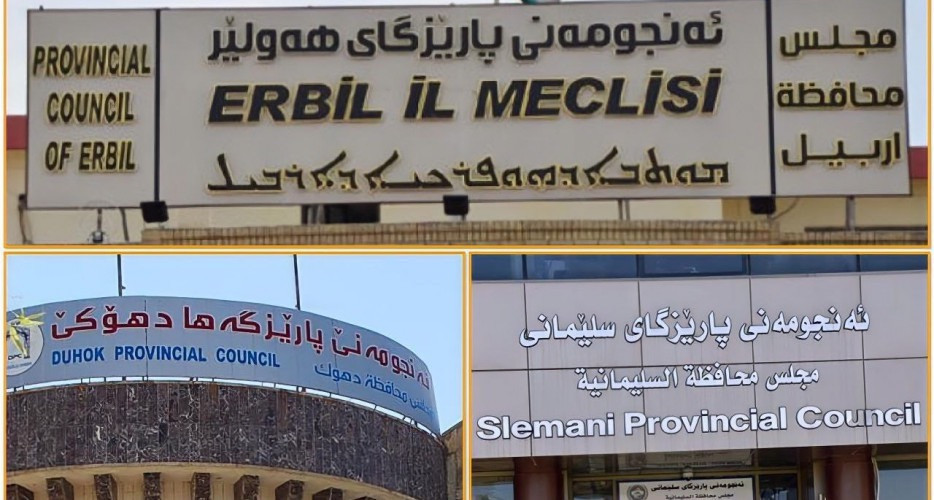
Peregraf- Ammar Aziz
Iraq’s Federal Supreme Court (FSC) ruled on September 24 that the decision to extend the terms of the Kurdistan Region’sprovincial councils is unconstitutional. The court took up the case following a lawsuit by the New Generation Movement.
The councils were originally elected in 2014 and new elections were scheduled for 2018 before being postponed indefinitely. In 2019, the Kurdistan Regional Government (KRG) extended their terms until new elections could be held.
The FSC ruling means that all actions by the councils after the end of its 2014-18 term are rendered invalid.
As a result, there are now no elected bodies in the Kurdistan Region that can provide legal oversight of the executive branch.Earlier this year, the court also invalidated the extension of the Kurdistan Parliament’s term.
However, according to many observers, the provincial councilswere unable to fulfil this role in the first place.
“Ninety percent of the provincial councils are dysfunctional,” Wahid Sindhi, a resident of Zakho in Duhok governorate, told Peregraf.
“Some council members merely collect a salary and live on the back of the government. They are weak and powerless,” Sindhiadded.
He questioned whether the Duhok Provincial Council had looked into why many local infrastructure developments had not progressed.
“The biggest project in Zakho has been suspended since 2014, for example. It is a large park that costs 6 billion Iraqi dinars [$4.56 million] or another park that costs of 2 billion Iraqi dinars [$1.52 million] and nothing has been done,” Sindhi said.
“And there are other problems that people face like the lack of gasoline and oil. Why has the council not followed up?”
The provincial councils operated under Law No. 3 of 2009 and their duties include to overseeing local administration andissuing ordinances, which have legal force as long as they do not clash with regional or national law.
According to a count kept by Peregraf, the provincial councils have made approximately 400 decisions since their terms began. Erbil Provincial Council had the most, with 181, followed by Duhok Provincial Council with 152 and Sulaimaniyah Provincial Council with just over 50.
"All of the decisions have been implemented. Some of them have been implemented for a long time, but we are not responsible for them," Ali Rashid, chairman of the Erbil Provincial Council, told Peregraf.
He did, however, acknowledge that some decisions have been delayed, particularly in terms of making appointments to local government bodies.
“The provincial administration did not send us any names for us to vote on for the acting positions. When the names are not sent, we cannot do anything,” Rashid said.
Mohammed Wahab, a member of the Sulaimaniyah Provincial Council from the Gorran Movement, told Peregraf that the council held 89 meetings during his time on the council.
“We were able to issue decisions or recommendations in the interest of the citizens," Wahab claimed, adding that "most" of their decisions have been implemented.
But his assessment was sunnier than his colleagues on other councils. Passing an ordinance does not mean that it will necessarily be followed by local authorities.
“This is because there are some businessmen who have greater power than the council. For example, the decision to close the Kuashe refineries was ignored," Rashid told Peregraf.
The Duhok Provincial Council also addressed the issue of illegal refineries on several occasions, but they continue to operate.
Abdulsamad Tele, a member of the PUK faction in the Duhok Provincial Council, told Peregraf "some of the council's decisions…have not been implemented by the executive authorities, such as the decision to close the Kwashe refineries.
“They should have been closed since 2016 and has not been done yet,” he said.
All of this inaction has come at great cost to the public treasury.
Peregraf previously published an investigation that found that the Kurdistan Regional Government (KRG) spends nearly 10 million Iraqi dinars ($7,600) on salaries of provincial council members each day, regardless of how active or effective they are in their jobs.
There are 30 members of the Erbil provincial council, 32 in Sulaimaniyah, and 28 in Duhok. Each earns 2.8 million Iraqi dinars ($2,130) per month, according to officials.